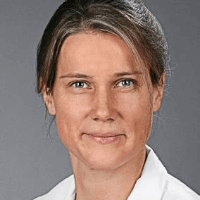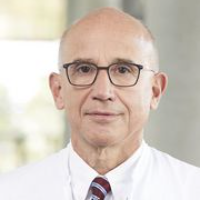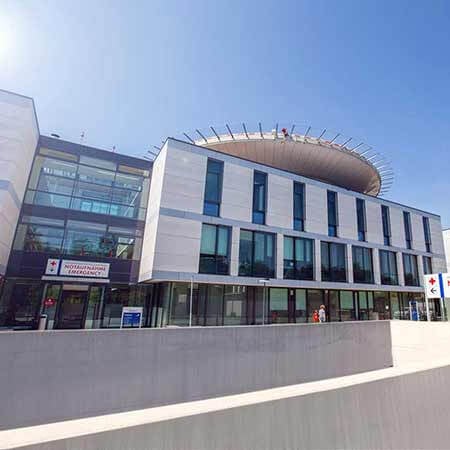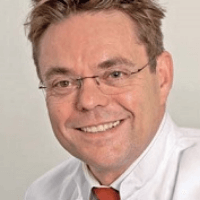Diagnostic of Acute Lymphoblastic Leukemia (all) in Germany
Treatment prices are regulated by national law of the corresponding countries, but can also include additional hospital coefficients. In order to receive the individual cost calculation, please send us the request and medical records.

Department of Hematology and Oncology
The Department of Hematology and Oncology offers the full range of services in these medical fields. It diagnoses and treats all benign and malignant blood diseases, cancers. The huge clinical experience and high competence of the doctors working in the department allow them to achieve excellent treatment results even in the most severe cases.


Department of Hematology, Oncology, Rheumatology, Infectology and Bone Marrow Transplantation
The Department of Hematology, Oncology, Rheumatology, Infectology and Bone Marrow Transplantation offers modern diagnostics and treatment in all areas of its specialization. The medical facility treats patients with solid malignant tumors of various locations, malignant and benign diseases of the hematopoietic system, rheumatic diseases, and infections. The department enjoys a reputation as one of the leading health facilities for bone marrow transplants in Germany, which is confirmed by accreditation in accordance with JACIE standards. More than 80 allogeneic and more than 100 autologous bone marrow transplants are performed in the medical facility annually. In addition, the department successfully carries out innovative CAR T-cell therapy, which is available only in the most advanced medical centers worldwide. The department is part of the Comprehensive Cancer Center Ulm (CCCU), where a multidisciplinary team of highly professional doctors takes care of the health of patients. The high quality of medical services is confirmed by the certification of the German Cancer Society (DKG). The health of patients is in the safe hands of experienced specialists who strive to provide each patient with the most effective treatment using advanced therapeutic methods. The medical facility has 112 beds and many specialized outpatient clinics.







Department of Hematology and Oncology
The Department of Hematology and Oncology offers the full range of diagnostics and treatment of blood diseases, coagulation disorders, oncological diseases and related pathological conditions. The treatment is provided both on an outpatient and inpatient basis. The patient is offered a comprehensive treatment, including intensive care to eliminate side effects associated with the tumor and therapy, development of individual recommendations on nutrition, physiotherapeutic measures and psycho-oncological care.

Acute lymphoblastic leukemia is a malignant disease of the hematopoietic system. In general, the disease is not common, but has a high mortality rate. Acute lymphoblastic leukemia accounts for about 1% in the structure of cancers. An individual risk of the development of the disease is 0.1%. The incidence in children is 1.5 times higher than in adults. The first peak of the incidence occurs at the age of 5 years, and then gradually decreases, reaching a minimal risk of leukemia at the age of 20 years. Then it gradually begins to increase and the second peak of incidence occurs in patients older than 50 years.
Symptoms
Acute lymphoblastic leukemia does not have pathognomonic (unique, characteristic manifestations only for this disease) symptoms. All of them are nonspecific. Most of the symptoms are associated with tumor intoxication and decreased number of blood cells. Volumetric formations compressing organs and vessels develop less often.
Common symptoms:
- weight loss;
- poor appetite;
- night sweats;
- fever.
The symptoms associated with the decreased number of blood cells:
- frequent infections and ulcers on the skin;
- bleeding gums, nosebleeds and bruises on the body;
- pale skin, shortness of breath, exercise intolerance, tachycardia.
The symptoms associated with the accumulation of lymphoblasts in the internal organs:
- enlarged liver and spleen;
- enlarged lymph nodes to more than 2 cm;
- joint and bone pain;
- neurological symptoms;
- enlarged thymus – it presses on the trachea causing cough and making breathing difficult, while the compression of the upper vena cava results in the swollen face, neck, arms, headache and dizziness.
Is it possible to carry out early diagnostics?
In the case of any deterioration in the health condition of the child or adult, one should consult a doctor and undergo complete blood count. This is the best type of early diagnostics. All people without exception undergo complete blood count regardless of the reason for their visit to a specialist. This examination can detect leukemia. The characteristic changes in the blood of a child include:
- decreased number of erythrocytes and platelets;
- onset of lymphoblasts – immature leukocytes.
A specific sign of leukemia is the onset of lymphoblasts in the blood. Normally, they should not be present at all. These are immature cells, which are contained only in the red bone marrow.
Confirmation and clarification of the diagnosis
To confirm the diagnosis, the patient requires two tests, namely bone marrow aspiration and biopsy. These serve to determine the number of blast cells (precursors of leukocytes). Normally, their number should not exceed 5%, but in case of leukemia their proportion increases to 20% or more.
The bone marrow aspiration is performed from the pelvic bone, less often from the sternum. The doctor uses local anesthesia. The child may have other options for pain management, such as general anesthesia or sedation. The needle is inserted into the pelvic bone. When it enters the bone marrow, the doctor pulls the aspirator piston towards himself, thereby creating a negative pressure in it. According to the mechanism for obtaining biomaterial, the procedure is similar to sampling blood from a vein.
The bone marrow biopsy is performed immediately after aspiration. To perform this procedure, the doctor uses a thicker needle. It allows him to obtain a sample of tissue in the form of a narrow column.
The examinations are indicated not only for making a diagnosis. The patient should undergo them repeatedly during the treatment process. With bone marrow biopsy, the doctor can either determine the achievement of remission or timely detect a relapse. He can see whether the treatment has any effect, and can change the regimen, if necessary.
Clarifying tests, the biological material for which is the patient's bone marrow:
- cytochemical examination – specifies the type of blast cells (myeloblasts or lymphoblasts);
- flow cytometry and immunohistochemistry;
- immunophenotyping;
- cytogenetic examination;
- fluorescence in situ hybridization (FISH);
- polymerase chain reaction (PCR).
These methods are applied to assess the risk of relapse, to predict the further development of the disease, and to plan therapeutic tactics.
Additional examinations
Some diagnostic examinations are not prescribed to all patients, but they are performed according to the indications only. These may be the following tests:
- Lumbar puncture can be carried out in suspected lesion of the structures of the central nervous system. It involves the sampling of cerebrospinal fluid by means of inserting a needle into the spinal canal through the space between the vertebrae. The procedure is not dangerous for most patients, because the analysis is taken from the area where the spinal cord ends.
- Lymph node biopsy is rarely performed. It involves the surgical removal of enlarged node (most often a cervical, axillary or inguinal one).
- X-ray helps to determine enlarged intrathoracic lymph nodes and signs of inflammatory processes of the bronchopulmonary system (a consequence of reduced immunity caused by leukemia).
- Computed tomography can be applied for the imaging of enlarged internals or lymph nodes.
- MRI allows the doctor to assess the state of the central nervous system, indicated in the case of malignant cells in the cerebrospinal fluid according to the results of lumbar puncture.
- Ultrasound can be performed to examine the abdominal organs and testicles in men.
The imaging methods are rarely applied in the diagnostics of lymphoblastic leukemia. In most cases, the doctor can get all the necessary information, which is required for the treatment by means of various diagnostic procedures with the red bone marrow.
Diagnostics in Germany with the Booking Health company
To undergo the diagnostics or treatment of acute lymphoblastic leukemia in the German clinic, you can use the services of Booking Health. When booking a treatment program with the help of our service, you will receive the following benefits:
- Selection of the best Oncohematological Center for the diagnostics and treatment of acute lymphoblastic leukemia in children.
- Reduced cost for the diagnostics and treatment of acute lymphoblastic leukemia in children.
- Booking an appointment with a doctor on the most suitable dates for you.
- Preparation of the diagnostic program taking into account previously performed examinations.
- Establishment of communication directly with the attending physician.
- Monitoring of the diagnostic program at all its stages.
- Control of invoices and return of unspent funds.
- Buying and forwarding of medicines.
- Organization of additional diagnostic or therapeutic procedures.
- Communication with the clinic after the diagnostics and treatment of acute lymphoblastic leukemia in adults.
The Booking Health company will provide the top-class services. We will book a hotel and airline tickets for you, meet you at the German airport, take you to the clinic and provide interpreting services.

